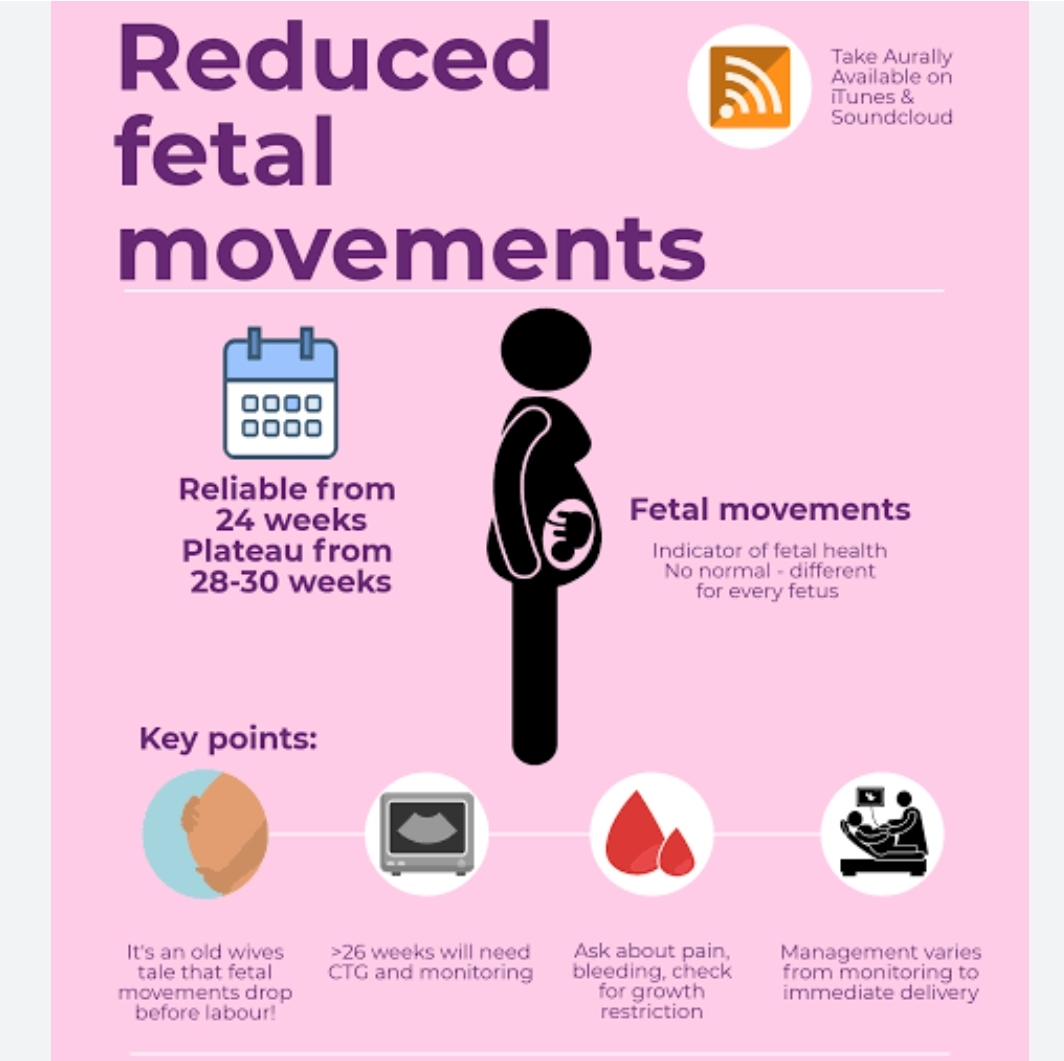
Decreased fetal movements after 28 weeks of pregnancy can be a sign of potential issues with the pregnancy and may indicate fetal distress, but not always. It is crucial because:
Fetal Well-Being: Reduced movement could signal that the baby is not getting enough oxygen or nutrients, possibly due to placental insufficiency, cord problems, or other complications.
Preterm Labor or Infection: Decreased movements can be associated with preterm labor, infections, or other maternal health conditions affecting the pregnancy.
Need for Monitoring: Decreased fetal movements often prompt closer monitoring, including non-stress tests, ultrasounds, or further assessments to ensure the baby is healthy and well.




